Premier League shirts row: The fickle fashions of sponsorship
- Published
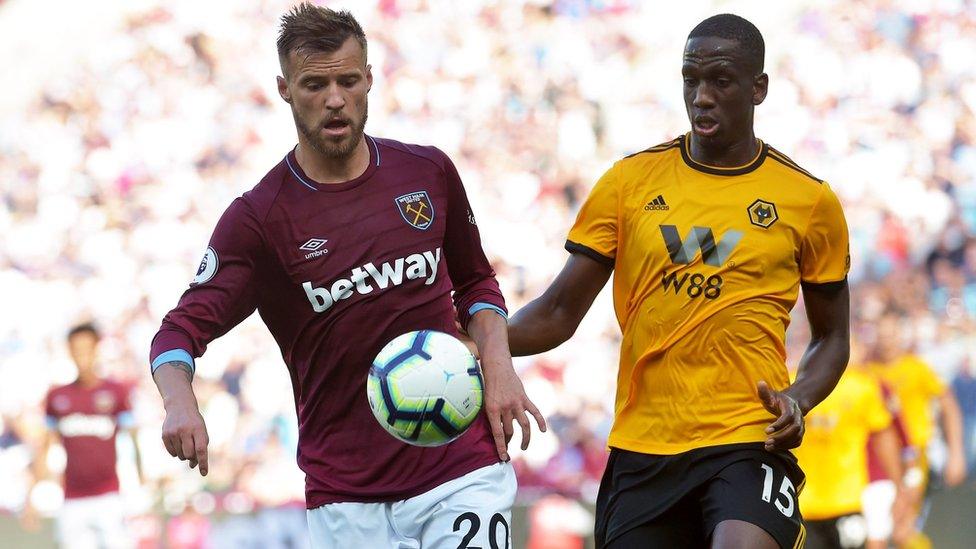
Former Arsenal and England captain Tony Adams spoke to Radio 4's Today programme on Thursday about the prevalence of gambling companies sponsoring football teams.
Asked whether he thought such sponsorship should stop, he said: "Yes absolutely. I think it's time. Like the alcohol sponsorship of the past."
But actually, there is nothing to stop alcohol companies sponsoring football teams in the English Premier League - it is down to the clubs to choose their sponsors.
The Football Association has intricate rules, external introduced in 2000 about how and where sponsorship may appear on football kit.
The regulations prohibit the display of "any distasteful, threatening, abusive, indecent, insulting, discriminatory or otherwise ethically or morally offensive message, or any political message".
However, the only items specifically forbidden from being advertised on kits are tobacco products.
Looking at Premier League shirt sponsors since the league began in 1992 tells us a lot about attitudes to particular products and the developing economy.
Since the league started, 60% of companies sponsoring shirts have fallen within four broad categories: financial, electronics/technology, alcohol and gambling.
Electronics/technology
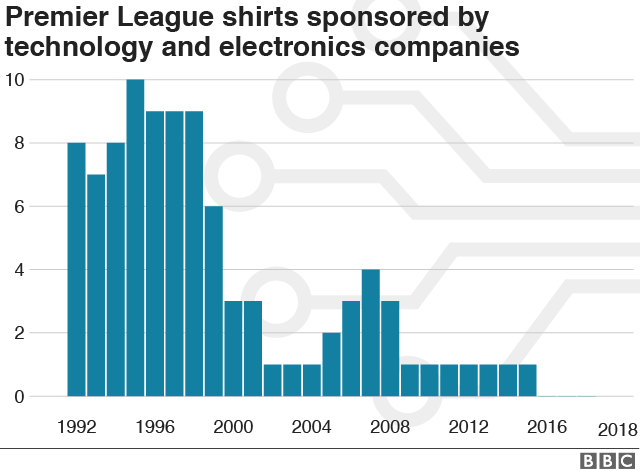
When the Premier League started, it was the big consumer electronics companies that dominated the sponsorship.
Sharp would be Manchester United's sponsor until 2000 while JVC featured on Arsenal's shirts until 1999.
Former England captain Tony Adams tells Today that gambling in football is destroying lives
In 1995-96, which was the first season when the Premier League was down to 20 teams from the original 22, half the clubs were sponsored by electronics and technology companies, including AST Computer at Aston Villa, Hewlett Packard at Tottenham, Brother at Manchester City and the software and IT services company Sanderson, which sponsored both Sheffield Wednesday and Southampton.
But by the start of the new millennium that had fallen to three companies, and in the last 10 seasons there has been no more than one company from this category per season.
Despite that decline, more electronics and technology companies have sponsored Premier League shirts than any other category, with 94 seasons between them.
Financial
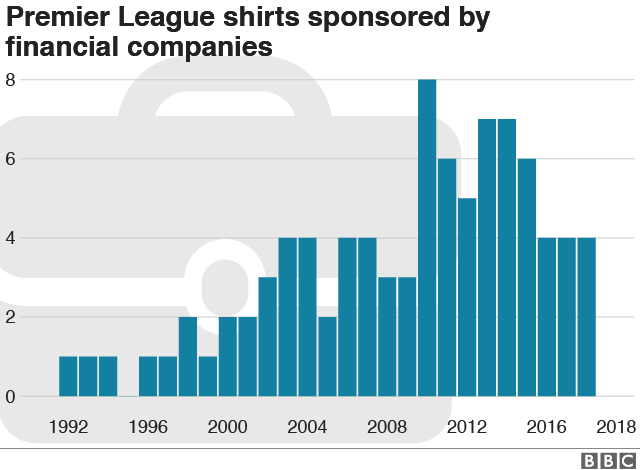
The second most common type of shirt sponsor is the financial sector, with 90 seasons of shirts. There has been a financial shirt sponsor in the Premier League in all but one season.
But the sector did not make a strong start in the new league, with Peterborough Building Society's sponsorship of Norwich City being the only deal in the first three years, followed by CIS Insurance's sponsorship of Blackburn.
In the noughties, the deals started building up, with the peak in 2010-11 despite the financial crisis.
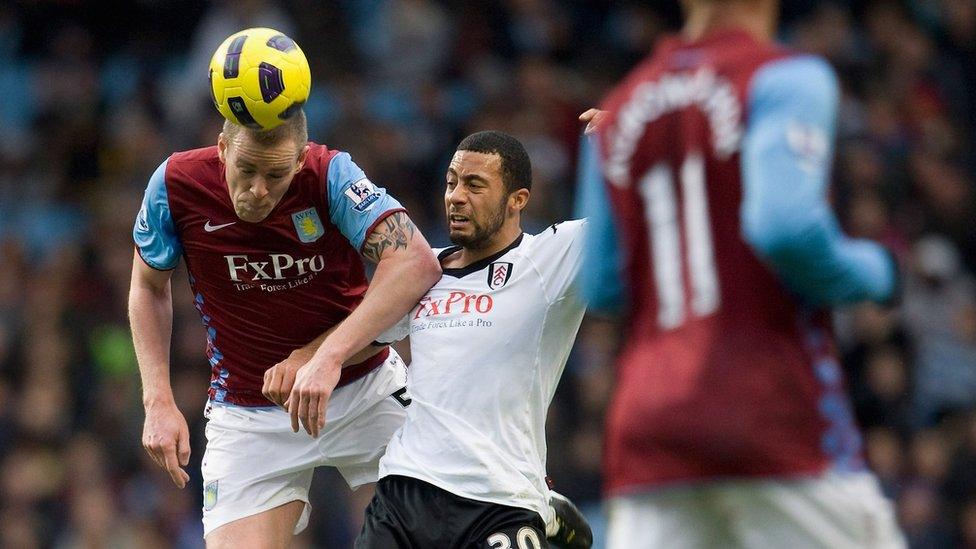
That year the foreign exchange broker FXPro sponsored both Fulham and Aston Villa (it now sponsors Watford) while Wonga was the sponsor for Blackpool's only season in the Premier League.
Northern Rock was Newcastle United's shirt sponsor, despite having been nationalised in 2008. It would remain so until January 2012, when it was replaced by Virgin Money, which had bought parts of it from the government. The 2010-11 season was also the year that Standard Chartered took over as Liverpool's sponsor, which it has remained ever since.
Alcohol
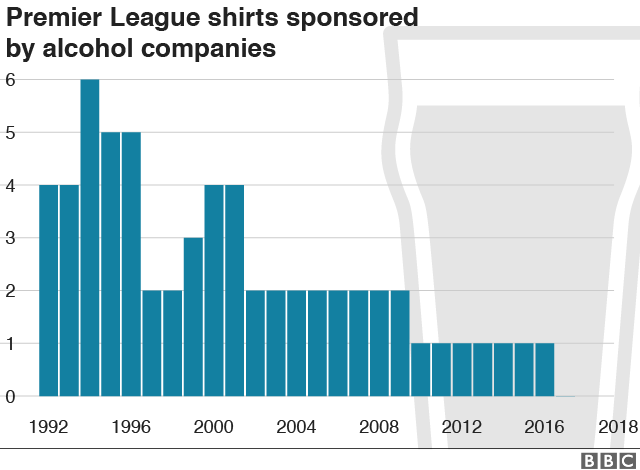
The Premier League itself was sponsored by Carling from its second season until 2001, known as the FA Carling Premiership.
Companies selling alcoholic drinks peaked relatively early in its history, but have been almost ever-present, with only last season and this one having no club sponsored by a drinks company. In total there have been 62 seasons of alcohol sponsorship.
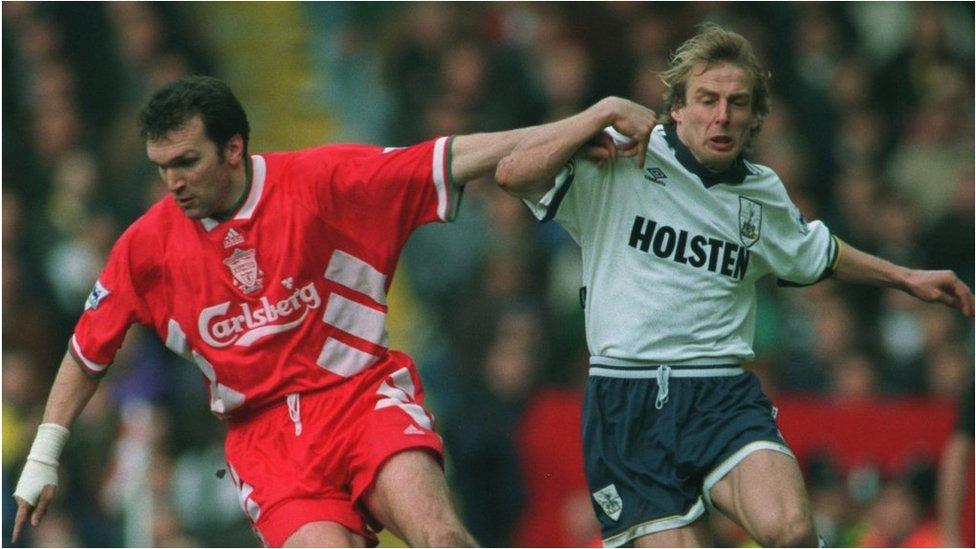
The season with the largest number of alcohol sponsorship deals was 1994-95 with six: McEwans at Blackburn, Coors at Chelsea, Carlsberg, which sponsored Liverpool for the first 18 years of the Premier League, Newcastle Brown at Newcastle, Labatt's at Nottingham Forest and Holsten at Spurs.
Alcohol sponsorship went out of fashion in recent years, with Chang Beer's 13-year deal with Everton being the league's only one after 2010.
The Portman Group, which represents drinks producers, has a code of practice, external for alcohol companies wanting to get involved in sports sponsorship.
Gambling
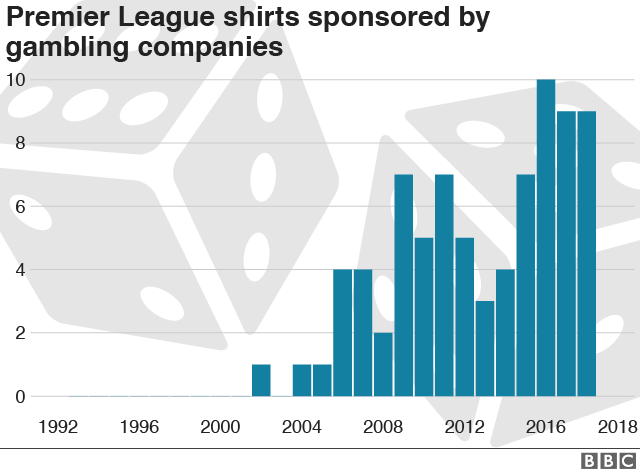
The big growth in gambling companies sponsoring Premier League clubs' shirts came after The Gambling Act 2005 allowed them to advertise on television and radio for the first time.
But gambling companies had advertised on shirts in the Premier League before then, with Betfair appearing on Fulham's shirts in 2002-03 and 888 sponsoring Middlesbrough in 2004-05 and 2005-06.
They have gone from strength to strength since then, and in the past 10 seasons, one-third of shirt sponsors have been gambling companies. The peak was in 2016-17, when half of clubs had a gambling company as their shirt sponsors. There have been 79 seasons of gambling sponsorship altogether.
Labour's deputy leader Tom Watson has pledged that a future Labour government would ban gambling companies from sponsoring Premier League teams.
The Premier League responded by telling Reality Check that its clubs had always made sure they followed the regulations in the Gambling Act.
"We extended our own betting rules, including the prohibition on betting on football to anyone working for the Premier League and its clubs, and improved our monitoring of integrity issues. We also remain fully committed to the advertising industry's guidance on betting advertising."
Shirt sponsorship in the Premier League by gambling companies was estimated to have been worth, external about £50m this season. The Gambling Commission recently reminded companies of its rules about sponsorship. , external
There are stricter rules for clubs' youth teams consisting entirely of players under the age of 18, which may not wear shirts advertising age-restricted products such as alcohol or gambling.
Replica shirts in junior sizes are also banned from carrying such sponsorship, so they are either made without it, as with West Ham, or have an entirely different sponsor, as with Wolves.
Others
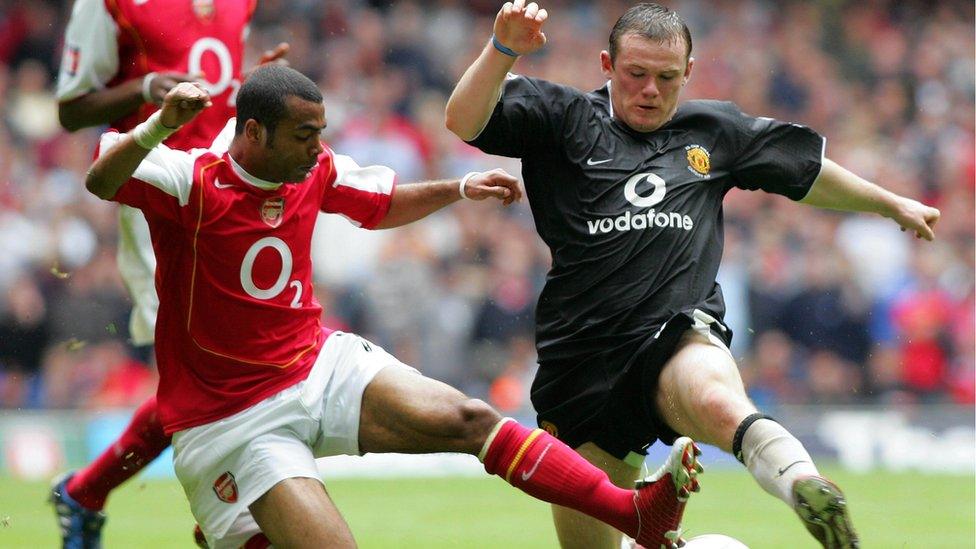
An honourable mention goes to telecoms companies, which were particularly well-represented at the turn of the millennium. They peaked at six deals in 2002-03 when O2 was sponsoring Arsenal and Vodafone appeared on Manchester United shirts.
Automotive companies had their big year in 1999-00, with five deals, including Subaru at Coventry City, Autoglass at Chelsea and car dealership Reg Vardy at Sunderland.
There are also a few interesting companies in the miscellaneous column: firms that were the only representatives of their industries to sponsor a Premier League shirt.
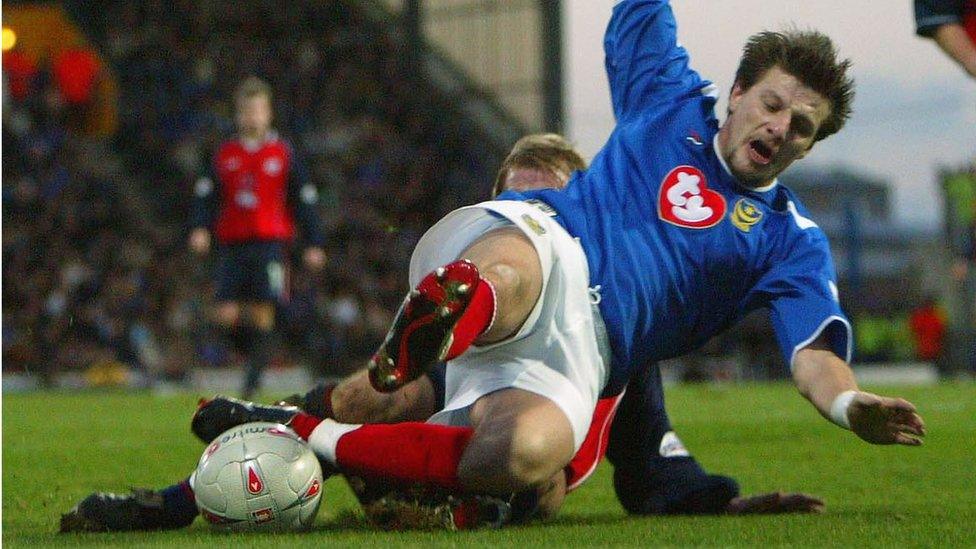
These include Draper Tools, which sponsored Southampton in 1992-93 and the toy company Ty, famous for cuddly toys with big eyes, which sponsored Portsmouth for two seasons.
Waitrose was the only supermarket to sponsor a Premier League shirt when it appeared on the Reading kit in 2012-13 while Crown Paints' three-year deal with Blackburn from 2008-09 was the only one of its sector, although the company also sponsored Liverpool in the old First Division.
And I think we'll have to wait a long time to see a competitor of Laver sponsoring a Premier League shirt again - it appeared on the shirts of Sheffield United in 1992-93 and 1993-94. It's a timber merchant.


